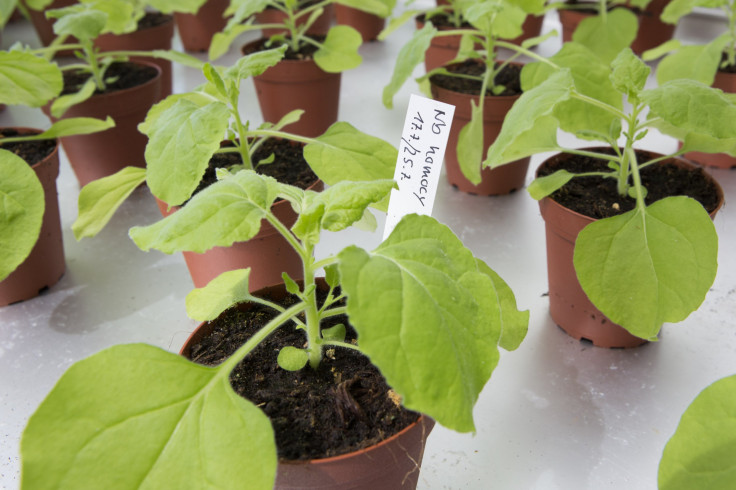Ebola Treatment From Tobacco? ‘Pharming’ May Aid In Deadly Ebola Outbreak

As West Africa grapples with the deadliest outbreak of Ebola ever, scientists have turned to an unlikely source in the desperate hunt for better treatments: tobacco. Laboratories in the U.S. and Europe are using tobacco plants to extract complex and potentially valuable proteins that could aid in the deadly Ebola outbreak that has already claimed some 1,070 lives and has sickened thousands more.
But getting any tobacco-derived drug to market will be an uphill battle. “[Tobacco] has a tremendous amount of promise, but it doesn't yet have the FDA blessing across the board to be able to say this is successful," Ben Locwin, a pharmaceutical biotech consultant in Portsmouth, New Hampshire, told the Associated Press. There are few examples of plant-derived, FDA-approved medicines available to even cite; the only one made this way that the federal government has approved is a carrot-based drug that treated a genetic disease called Gaucher’s disease.
Experimenting with plants in this way is called “pharming,” and has been an area of interest for the past two decades. Some companies have begun experimenting with it to create drugs against diseases like HIV, norovirus and even cancer, but it's still a nascent industry.
Scientists prefer tobacco plants because their chemistry has been widely studied and the plants are fast-growing. San Diego-based pharmaceutical company Mapp Biopharmaceutical has developed an Ebola treatment from tobacco called ZMapp, but it is still considered experimental and is not yet in wide use.
© Copyright IBTimes 2024. All rights reserved.






















